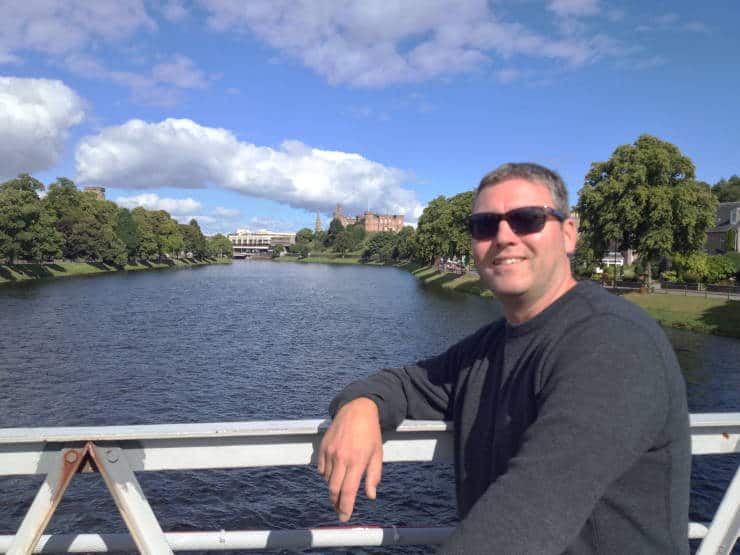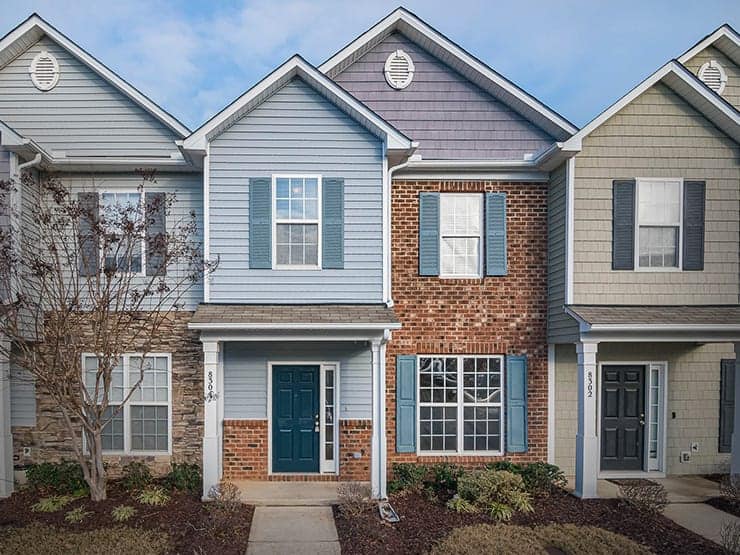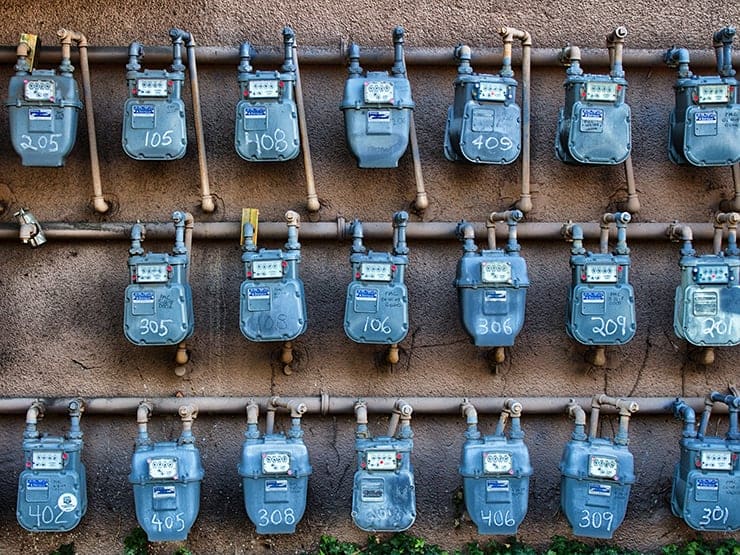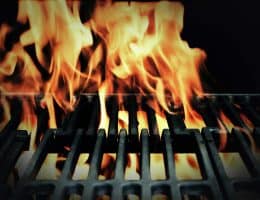Photo credit: Armon Arani on Unsplash
How Much Does it Cost to Live the FIRE Life in Victoria?
Hello, and welcome to interview #23 in the How Much Does it Cost to Live the FIRE Life interview series! Part interview, part spending report, this series will introduce us to FIRE* seekers from all over the world.
They’ll reveal their essential spending and money-saving tips—all to help us learn new ways to save on our own expenses. As a bonus, we’ll also get to discover the unique advantages and challenges of living in different places around the globe.
*FIRE stands for financial independence, retire early. It’s also known as FI—financial independence. For more info, see my FI School series—it’ll teach you everything you need to know about FI (and FIRE).
About the interview series
I created an intro page for this interview series to help explain what it’s about, what’s included (or not) and why. I’ll also link to all the interviews from the intro page—so check back there to see the entire collection.
Jump to the series intro: How Much Does it Cost to Live the FIRE Life? (The Interview Series)
Disclosure: These interviews may include affiliate links. That means I’ll receive a commission if you make a purchase through my links—at no extra cost to you. Thank you!
Interview #23: Money Mechanic in Victoria, BC
Today, I’m finally interviewing my friend and podcast partner-in-crime, Money Mechanic! (He’s also one of the co-hosts of FI Garage—my other favourite Canadian FI podcast.) Money Mechanic live in historic Victoria, BC—the capital city of our province.
Most visitors to Vancouver inevitably end up visiting Victoria, too—it’s too darned pretty to miss! Victoria’s also sunnier, less rainy, and less hot/cold than Vancouver. It’s Vancouver’s beautiful island neighbour… with better weather!
This is why my family and I love visiting Victoria and why, along with Kelowna, it’s one of the BC cities I’d consider moving to. If you’re ever in the Vancouver area, be sure to give yourself a few days to visit our capital city. You won’t be disappointed.
About FI Garage
I first heard of Money Mechanic when I discovered his podcast, FI Garage. (I believe it’s Canada’s first-ever FI podcast.) I was immediately drawn in by the hilarious banter between him and his co-hosts, The Accountant and The Economist.
They’re good friends, and it comes through in their recordings as they share beers, take digs at each other and chat about FI and investing. The guys never fail to make me LOL in every episode! If you’re looking for a fun and casual take on financial independence in Canada, you’ll love FI Garage.
About Explore FI Canada
As for Explore FI Canada (the podcast Money Mechanic and I host together), here’s the story of how it got started. On the show, we chat with our fellow Canadians to share their FI journeys and the unique advantages and challenges of pursuing FI where they live.
We also bring on bloggers and experts to share their experience and advice on FI-related topics such as RESPs, pensions, the Smith Manoeuvre, and more. If you’re seeking even more Canadian FI content, give Explore FI Canada a listen!
But before you do, grab a coffee (or tea) and get cozy… it’s time to take a peek into Money Mechanic’s annual spending!
Table of Contents
Part 1
Part 2
Part 3
Part 4
Part 1: Getting to know you

Tell us about you and your wife
Married, both mid-40s, no kids, two dogs.
Where are you in your journey to FIRE?
We are Coast FI, but it seems that we keep making enough to contribute to savings anyway. We could be full FIRE in +/- 5 years.
What type of FIRE are you aiming for? (FIRE, Lean FIRE, or Fat FIRE*)
How Chrissy defines FIRE, Lean FIRE, and Fat FIRE
Some people define Lean FIRE as under $40k in annual spending; FIRE as $40–$100k in annual spending; and Fat FIRE as $100k+ in annual spending.
However, I prefer looser definitions that are not based on hard numbers. That’s because $100k could be Fat FIRE in a small Canadian town but Lean FIRE in San Francisco. That said, here are my definitions:
- Lean FIRE: The essentials with little or no discretionary spending.
- FIRE: The essentials plus a comfortable amount of discretionary spending.
- Fat FIRE: The essentials plus a luxurious amount of discretionary spending.
FIRE.
Tell us about your living situation
We own 82% of our single-family home. We plan on staying there 4-5 more years before geo-arbitrage. This arbitrage will solidify our FIRE number. The current location is in a HCOL area, and we are close to all amenities we need. We don’t have any house hacks, but we have considered converting the basement into a part-time Airbnb for when we are away. TBD.
Why did you choose to live in Victoria?
Lifestyle, the city offers us convenient access to the ocean, lakes and family. We have a great social circle and participate in the community. Employment opportunity was also a consideration.
Part 2: The expenses
In this section, Money Mechanic shares his essential expenses and best money-saving tips. But before we get started, let’s review some important notes:
Important notes about the numbers
- Only essential expenses are included.
- Discretionary expenses (e.g. travel, gifts, etc.) are not included.
- Expenses are rounded to the nearest dollar.
- Expenses are displayed in the interviewee’s home currency.
- In this interview, the home currency is Canadian dollars.
- For your convenience, I’ve included a currency converter for each expense.
For detailed explanations about which expenses are included (or not) see my How Much Does it Cost to Live the FIRE Life intro post.
1. How much does housing cost in Victoria?

Mortgage ($1,036/month; $12,432/year) 
We used a 30-year term with 20% down. This gave us flexibility to have small bi-weekly payments and aggressively pay extra at the beginning. I wish I had known more about the Smith Manoeuvre at the beginning!! We are using the strategy for the small remaining balance we have.
Property tax ($283/month; $3,396/year) 
Triangle MasterCard from Canadian Tire!! Get that cashback people!!
Strata/HOA fees ($0) 
Single-family home, just my time to keep things maintained.
Home insurance ($70/month; $840/year) 
We have been bundling our home and auto insurance at BCAA for the last few years which seems to be a good deal, but I may shop around this year.
Chrissy slashed her home insurance bill in half by switching to Square One Insurance! BONUS: Get a $25 credit when you purchase a policy through Chrissy’s link!
Home maintenance ($150/month; $1,800/year) 
This category includes: home maintenance, repairs, cleaning, and improvements; household goods and supplies; furniture; and appliances.
This is a tough one. I am 99% DIY, so I’ll spend the time to learn a new skill or repair as necessary. I do outsource some jobs that I don’t like, and take a lot of time. If a single, labour intensive task is going to take me all day, but costs less than I earn at work, I may as well go to the job I’m paid for.
I generally shop on the classifieds first for everything related to the house. If a quality used item is not available, I will spend a lot of time comparison shopping for the right product and the right price. I always shop for quality before price. All our appliances are +10 years old and work great. We definitely don’t ‘upgrade’ anything on a regular basis.
Home equity opportunity cost ($4,800/year) 
About the home equity opportunity cost ‘expense’
This category was suggested by The Economist from FI Garage. The intention for sharing this is to calculate the opportunity cost of home ownership versus renting.
In other words: if you invested the amount that’s tied up in your home equity, how much would that be worth after one year of investing (based on a conservative 5% return)?
Home equity is an interesting discussion, especially in the FIRE community. I personally think it is a tool that should be used to help further your FI journey. But it has to be used prudently and responsibly. In 6 years, we have built equity by paying down $300,000 of our mortgage.
We have benefited from an increase in property value of another $300,000. That gives us the opportunity to put approx $475,000 into investments. I feel comfortable using around half to 3/4s. We currently have $190,000 deployed and are generating $2,100 in monthly cashflow.
That SIGNIFICANTLY changes our FI requirements. While not everyone will be comfortable with using leverage. It is important to understand what you can do with it, and the opportunity cost of not using it. The more you learn, the more confidence you will have.
Chrissy’s thoughts
Money Mechanic and his wife have $600,000 in home equity, so $600,000 x 5% = $30,000 in opportunity cost after one year of investing. However, he has actually deployed some of that equity and earns over $2,100 in monthly cashflow on it.
So, they generate $2,100 x 12 months = $25,200 in annual cashflow from deploying $190,000 in home equity. That almost offsets all the opportunity cost of their $600,000 in home equity! That means their actual opportunity cost is $30,000 – $25,200 = $4,800.
2. How much does transportation cost in Victoria?

Vehicle loan payments ($0) 
NEVER!! But wait… For us specifically, we have never had a car payment. Unless you consider the $1,500 my Grandma loaned me when I was 18 for a crappy used Honda.
Now there is something interesting to consider about car loans. First, you quite often can negotiate a better price by financing from the dealer. Maybe your loan doesn’t have strict repayment terms and you can pay it off in the first year. That might save you some cash.
Secondly, you might get a great financing deal and consider the arbitrage between that rate and what you can earn from investing the lump sum of cash. Most people won’t be disciplined enough to follow through with this over a long period. But hey, run the numbers, maybe you can do it.
So this leads to the fact that we haven’t bought a vehicle in the last 5 years, and don’t plan to for another 5 years. We’ll have collectors plates on the VW by then!! But I will consider the rate arbitrage between my HELOC and an investment when it does come time to purchase.
Vehicle insurance ($90/month; $1,080/year) 
As above, bundled with home insurance for a deal. Highest deductibles for lower premiums.
Gas ($40/month; $480/year) 
We have a diesel that gets fantastic mileage.
Vehicle maintenance ($50/month; $600/year) 
I do 99% of my own maintenance. I purchase parts online at a discount and they are shipped right to my door.
Bike maintenance ($0) 
I do 100% of our bike maintenance, parts are usually found on the classifieds if possible.
Parking and tolls ($0) 
I buy a parking card from the city with $20 credit, then I can use it at the automated booths and pay by the minute instead of a block of time.
Transit ($0) 
We do not use transit.
3. How much does food cost in Victoria?

Groceries ($700/month; $8,400/year) 
We created a regular meal plan with 5–8 dishes that we enjoy. They are easy to shop for and they make enough to freeze as leftovers. We have a simple diet of natural food, we don’t purchase any convenience items or deli foods.
Related reading: Learn how Chrissy’s family saves big on groceries and how they purchase groceries for 50–70% off with Flashfood.
Eating out ($200/month; $2,400/year) 
This is a tough one as I think it fluctuates a lot. On average we eat out 2 times a month, with 1 or 2 takeout meals.
4. How much do utilities and bills cost in Victoria?

Heating oil ($100/month; $1,200/year) 
We have oil heating, so that is on an auto-delivery program that saves us 1%. I pay it with a credit card for the cashback. It’s also from a Co-op where we get cashback on spending every year. Stack those rewards people!!
Electricity ($100/month; $1,200/year) 
Not much here, I try to keep us in the lowest tier. Ie. Not doing multiple loads of laundry, and running the dishwasher on the same day, etc. All lights are LED.
Water, garbage and recycling ($50/month; $600/year) 
We have rain barrels, other irrigation is automated. I’d like to build a grey water recycling system, but haven’t got there yet. We use the smallest garbage bin the city offers to save a few bucks.
Internet ($45/month; $540/year) 
AEBC is a great provider that uses one of the big provider lines anyway. We know how much bandwidth and data we need, so we don’t overpay for ‘faster’ and ‘better’ internet which is unnecessary.
Home phone ($0) 
People still have these!?
Cell phones ($41/month; $492/year) 
Public Mobile, again, know your usage requirements. No point paying for more if you don’t need it.
BONUS: Receive a $10 Public Mobile credit when you use one of our referral codes! (Money Mechanic’s is NY5Z04 and mine is X946WK.)
Streaming entertainment ($17/month; $204/year) 
Shared accounts with family. Stay on top of subscriptions and cancel them when they are stale.
5. How much do other essentials cost in Victoria?

Life and disability insurance ($0) 
We’re self-insured.
Medical insurance ($0) 
Currently covered through work, will consider private coverage when we FIRE. TBD.
Out-of-pocket medical expenses ($100/month; $1,200/year) 
Not much here for us except for dental that is not covered.
Clothing and footwear ($60/month; $720/year) 
We shop very rarely for clothing and footwear. We both recognize the value of good quality products and look for them on sale. I have created a simple, functional, comfortable, ‘standard outfit’ for myself.
I do buy multiple of the same item if I find it at a great deal. I hate having to find a replacement pair of shoes, when I loved the old ones. To avoid that, I’ll buy two pairs at the beginning.
Personal care ($60/month; $720/year) 
This category includes: haircuts, toiletries and grooming services and supplies.
I do haircuts at home, and my wife was going to a hairdresser a couple times a year ($300).
We have simple needs when it comes to supplies. We don’t buy into all the garbage products out there. We make our own soap, and keep it simple with everything else. I buy in bulk when our preferred products go on sale.
Technology ($15/month; $180/year) 
This category includes essential technology: software and hardware purchases, upgrades, maintenance, and repairs. Non-essentials (video games and consoles, e-readers, security cameras, etc.) aren’t included.
We have a refurbished Macbook that is still going strong from 8 years ago. I upgrade my PC Laptop every 3–4 years. But I always buy a used one. I generally save 50–70% of the original purchase price, and I usually find a 1-year-old model available.
I also upgrade the RAM and hard drive, usually just swapped out of the old model, for the best performance possible. I also start looking before I need to change. That way I have some runway to look for the best deal. I look for high-end models that people are replacing to stay ‘on top’ of the tech market.
Gaming laptops are very high performance and are often the first to get sold when new tech comes out. You will pay a little higher premium for them, but they have better components and will last longer. I currently have my third ASUS (my brand of choice) bought two years ago for $700 cash and I love it.
We have 5+ year old iPads, they were bought used.
We both still have iPhone 5SEs. Both were bought used, two-ish years ago. I would never pay more than $200 for a phone. If you basically just watch until your existing phone is worth $100, sell it and buy the ones that are $200. You get a phone for 2–3 years that cost you ~$0.15/day. My Telus dividends pay for that!!
We are lucky here to live in a pretty techy city, it is really easy to find good deals on tech that is being turned over by the consumer clowns buying new all the time. The only ‘new’ item we have, is the ‘display model’ TV I bought seven years ago at a steep discount.
Moral of the story: SHOP USED.
Part 3: Adding it all up
Now that we’ve detailed all of Money Mechanic’s essential expenses, it’s time to add everything up in some nice, organized tables!
Important notes about the numbers
- Only essential expenses are included.
- Discretionary expenses (e.g. travel, gifts, etc.) are not included.
- Expenses are rounded to the nearest dollar.
- Expenses are displayed in the interviewee’s home currency.
- In this interview, the home currency is Canadian dollars.
- For your convenience, I’ve included a currency converter in each section. I hope you find it useful!
For detailed explanations about which expenses are included (or not) see my How Much Does it Cost to Live the FIRE Life intro post.
How much does it cost to live the FIRE life in Victoria?
1. Housing
| Expense | Monthly (CAD) | Annual (CAD) |
|---|---|---|
| Mortgage | $1,036 | $12,432 |
| Property tax | $283 | $3,396 |
| Strata/HOA fees | $0 | $0 |
| Home insurance | $70 | $840 |
| Maintenance | $150 | $1,800 |
| TOTAL | $1,539 (with mortgage) $503 (no mortgage) | $18,468 (with mortgage) $6,036 (no mortgage) |
Home equity opportunity cost: $4,800/year
2. Transportation
| Expense | Monthly (CAD) | Annual (CAD) |
|---|---|---|
| Vehicle loan | $0 | $0 |
| Vehicle insurance | $90 | $1,080 |
| Gas | $40 | $480 |
| Vehicle maintenance | $50 | $600 |
| Bike maintenance | $0 | $0 |
| Parking and tolls | $0 | $0 |
| Transit | $0 | $0 |
| TOTAL | $180 | $2,160 |
3. Food
| Expense | Monthly (CAD) | Annual (CAD) |
|---|---|---|
| Groceries | $700 | $8,400 |
| Eating out | $200 | $2,400 |
| TOTAL | $900 | $10,800 |
4. Utilities and bills
| Expense | Monthly (CAD) | Annual (CAD) |
|---|---|---|
| Heating oil | $100 | $1,200 |
| Electricity | $100 | $1,200 |
| Water, garbage and recycling | $50 | $600 |
| Internet | $45 | $540 |
| Home phone | $0 | $0 |
| Cell phones | $41 | $492 |
| Streaming entertainment | $17 | $204 |
| TOTAL | $353 | $4,236 |
5. Other essentials
| Expense | Monthly (CAD) | Annual (CAD) |
|---|---|---|
| Life and disability insurance | $0 | $0 |
| Medical insurance | $0 | $0 |
| Out-of-pocket medical expenses | $100 | $1,200 |
| Clothing and footwear | $60 | $720 |
| Personal care | $60 | $720 |
| Technology | $15 | $180 |
| TOTAL | $235 | $2,820 |
Grand totals
| Expense | Monthly (CAD) | Annual (CAD) |
|---|---|---|
| Housing | $1,539 (with mortgage) $503 (no mortgage) | $18,468 (with mortgage) $6,036 (no mortgage) |
| Transportation | $180 | $2,160 |
| Food | $900 | $10,800 |
| Utilities and bills | $353 | $4,236 |
| Other essentials | $235 | $2,820 |
| TOTAL | $3,207 (with mortgage) $2,171 (no mortgage) | $38,484 (with mortgage) $26,052 (no mortgage) |
Chrissy’s takeaways
Thank you to Money Mechanic for sharing his and his wife’s expenses. I loved this interview! I thought I knew my co-host quite well, but I learned a few new things about him and about how to be even more frugal! Here are my takeaways:
You can DIY anything… but you don’t have to
I always knew that Money Mechanic and his wife were handy and into DIY, but I didn’t realize the extent of their DIY efforts! For example, they make their own soap?! Amazing. I’m constantly inspired by MM’s DIY prowess and hope to one day DIY as much as he and his wife do.
Even so, I noted this quote from MM’s interview: “If a single, labour-intensive task is going to take me all day, but costs less than I earn at work, I may as well go to the job I’m paid for.” In other words, your time is worth something; it’s not always worth it to DIY.
Saving big on technology
Frugality is pretty simple, and after a while, you’ve seen and used all the tips out there. That’s not the case with MM’s approach to technology—it’s unlike anything else I’ve come across. In particular, I appreciated his tip to buy used gaming PCs. That’s just ingenious!
I’m also super impressed (and had no idea) that he and his wife still have iPhone 5SEs… and the phones were already used to start with! These are 5-year-old phones! As far as smartphones go, that’s downright ancient.
Kudos to MM and his wife for resisting the pull to upgrade. Amazingly, that doesn’t just apply to their phones or tech devices—as he mentioned, “We definitely don’t ‘upgrade’ anything on a regular basis.” This goes a long way to helping them reach FI, and it’s also the mindset more of us need to adopt if we want to fight this climate crisis we’re all in.
I know I’m going to try even harder to stretch out the life of my family’s devices. Thanks for the inspiration, MM!
When HCOL isn’t—yet again!
MM and his wife spend a total of $26,052 CAD per year on essentials (minus their mortgage). That’s similar to two other Canadian couples in my series: AL and his wife in a Vancouver suburb ($23,311 CAD) and Nadia and her husband in North Vancouver ($25,884 CAD).
Victoria and the Vancouver area are high-cost-of-living areas. And yet, all these couples keep their essential spending well below $30,000 per year… with no deprivation. They all live abundant, fulfilling lives and are by no means house-poor or cash-strapped.
I’ve been pleasantly surprised to see this over and over again in my series. And this isn’t just in my part of the world! Other low spenders in HCOL areas include Steve and his wife in Taipei, Richard and his family in Singapore, and Hi FI-ing Auntie—also in Singapore.
These interviewees show what’s possible when you make frugal choices across most areas of your spending. I hope others can take bits and pieces from these interviews and apply them to their own lives.
Chrissy’s closing thoughts
Although we talk about money all the time, I never knew just how frugal Money Mechanic and his wife truly are! It was enjoyable for me to get to know this ‘hidden’ side of MM’s life. I’m so impressed and am inspired to do even more DIY than we already do.
MM shows how it’s very much possible to reach FI—even while living in a HCOL area and slowing down for a Coast FI lifestyle. Bravo to him and his wife for living so sustainably and mindfully. Their frugal lifestyle is a fantastic model for all of us.
Share your thoughts
Were you surprised by Money Mechanic’s essential expenses? Are any of them significantly different from where you live? Share your thoughts in the comments, along with your own money saving tips!
Syun and his wife life in the expensive mega-city of Tokyo, Japan… yet they spend less than any other couple in this interview series so far!
Sarah and Laura live in the South Australian city of Adelaide—one of the world’s most liveable cities (and, apparently, affordable and FIRE-friendly too)!
Visit the intro page to learn more about the what and why behind the series and access the complete list of interviews.
Support this blog
If you liked this article and want more content like this, please support this blog by sharing it! Not only does it help spread the FIRE, but it lets me know what content you find most useful. (Which encourages me to write more of it!)
You can also support this blog by visiting my recommendations page and purchasing through the links. Note that not every link is an affiliate link—some are just favourite products and services that I want to share. 🙂
As always, however you show your support for this blog—THANK YOU!








31 Comments
Liquid
December 8, 2021 at 1:09 pmThe consumer clowns that MM mentioned are what keeps the dividend income flowing for investors, lol. I’m also surprised he makes his own soap. I buy my shampoo and body wash from the dollar store, but home made soap is a great DIY idea. I should learn how to do that. 🙂
Chrissy
December 8, 2021 at 7:40 pmHi Liquid—I guess all of us who are investors should be grateful for consumer clowns! But as an eco-conscious human, I would prefer far fewer of them. 🤔
As for soap making, that’s something that’s always seemed too challenging for me! However, I may ask MM and his wife for their recipes and tips. Homemade soap is also a fantastic, consumable gift!
Money Mechanic
December 9, 2021 at 12:36 pmThe soap really spawned out of a hobby project for my wife. We’re probably 20 bars away from net $0 ROI. LOL But it is amazing soap, and one day I hope to convince her to sell it.
Max
December 8, 2021 at 10:15 pmKudos to Money Mechanic for his achievements, it takes a lot of effort, sacrifices and will power to get there. The one thing that really caught my eye was that he uses his home equity as leverage for other investments to get to FIRE quicker. Based on the numbers he provides, he’s making a return of about 13% (not sure if that is after tax and net of loan interest). The high return indicates to me that the cash flow does not just come from safe dividends. I have used this strategy in the past but in my view, this is a high risk strategy considering the current housing and stock market environment, i.e. his home equity could easily be cut in half if we have a big correction in housing and equities. It would be a big setback for FIRE. Inexperienced readers might think this strategy is the best thing ever, but it might just as likely get them into big trouble.
Money Mechanic
December 9, 2021 at 12:39 pmGreat point Max.
You’re correct about the returns, and they are gross. I use a combination of RE and private lending. As you mentioned a housing correction would impact my HELOC room, and that is why I only use 1/2 to 3/4. I’m also prepared to cover the cost of that borrowing should a deal I have fall through. It is all about the risk mitigation and contingency planning. I’ve said many times on the podcast that any kind of leverage should be considered an advanced strategy.
Cheers
Chrissy
December 9, 2021 at 8:37 pmHi Max—you’re absolutely right that leveraged investing can be extremely risky. It must be used carefully and only after a lot of learning and (in most cases) consultation with experts. Done right, it is an amazing strategy. But there is, as you’ve pointed out, huge potential for disaster.
And yes, I agree that it takes a lot of effort, sacrifices and willpower to get to where MM and his wife are. They’ve done well!
Chris @ Mindful Explorer
December 9, 2021 at 8:22 amI will put one thing in here for myself and a majority of people like Money Mechanic who live on the west coast. For the most part we are only able to have this low cost of living because of getting in the house market early or good luck/timing. With current rental rates and vacancies less that 1% on the island and housing prices up over 50% in the last 5 years it is impossible for anyone to move and live here at frugal reasonable costs. If they were these current prices back in 2013 I would never have been able to move to the west coast or have the quality of life I have now.
As for the blog post today, absolutely love the breakdown and Money Mechanics numbers are almost identical to mine…love it 🙂 Well done on keeping lifestyle in check while living in a city that pushes one to inflate their lifestyle. O course I have to poke you to get ride of that oil furnace, the rebates and grants right now are insane in BC not to take advantage of going to a heat pump. My entire house is electric including heat pump with 4 adults living here, cost monthly is $95, so over 50% below your combined plus it is renewable energy (hydro)
Money Mechanic
December 9, 2021 at 12:48 pmI totally agree that we were fortunate (lucky) with our house purchase timing 7 years ago. That was not intentional, even then we thought the market was expensive!! We had always planned to crush the mortgage as much as possible in the first 5 years, and then let it ride after that. I don’t think we would choose to live in Vic now if we were faced with the cost of housing now.
I did look into Heat pump a few years ago, and will have to go down that road again. The ROI was not there for us as we would have to upgrade our electrical and replace our oil tank, which was a significant cost even before the cost and rebate of the Heat pump. I’ve been looking at used ones as they come up and might just put in a single head one myself.
Chrissy
December 9, 2021 at 9:40 pmHey MM—you, Chris and I are in a similar age bracket, and it was also unintentional for us. We were all very lucky with the timing of our home purchases.
Regarding the heat pump, if you didn’t know, there are also great federal rebates right now: https://www.nrcan.gc.ca/energy-efficiency/homes/canada-greener-homes-grant/23441
Chrissy
December 9, 2021 at 9:21 pmHi Chris—you’re right that housing is a huge factor. It’s very hard to get ahead or break into the market at the prices that are out there now. I feel for those who are doing everything they can to make it, but are still locked out of a housing market.
However, I do have two real-life examples of younger millennials who have been able to swing it with some creativity and flexbility (and no parental money). I shared these two stories in the comments of my interview with Nadia from North Vancouver. (Here’s the jump link right to my comment to a reader named Stephanie.)
This isn’t to deny that there’s an affordable housing issue or to say that anyone can make it. I just want to share that there are real people out there (not just rich foreigners or high earners) who are still able to find a way to enter the housing market. It’s much more challenging for young people now than it was for us. But it’s also not 100% impossible for regular people to find livable housing that still allows them to save and reach their goals.
Regarding the heat pump, I need to DM you about this! I considered replacing our natural gas boiler with a heat pump, but have heard that our electricity bill could go up substantially—partly because of the step 2 threshold, but also because of the much higher usage once heating is included.
Kevin
December 9, 2021 at 12:29 pmGood interview. Not too long, very readable. Good tip on the laptop computer upgrade hacking buying nearly-new gaming laptops. Wish I had thought of that before this!
Chris – great suggestion for the heat pump. Everyone I know who has gotten one seems very happy with it.
Chrissy
December 9, 2021 at 9:36 pmHi Kevin—thanks for reading and commenting… wherever in the world you are right now! I also enjoyed MM’s interview very much and am glad to hear you did too. Yeah, the gaming laptop tip is pure gold. I’ll have to remember it the next time I’m in the market for a new PC.
AnotherLoonie
December 9, 2021 at 7:47 pmAmazing how similar your numbers are to my own (sans mortgage, of course). Hope you do a follow up interview in a few years when you’ve started geo-arbitrage!
Chrissy
December 9, 2021 at 9:41 pmHey AL—I also noticed how similar MM’s numbers are to yours. Frugal minds think alike, I guess!
A follow-up would be so interesting. I’ll have to do a “Where are they now” series in a few years to check in with all my interviewees. Thanks for the idea!
Money Mechanic
December 16, 2021 at 3:07 pmI think most numbers will stay the same after Geo-arbitrage, we’ll hopefully just free up more cash to be invested.
C
December 9, 2021 at 9:18 pmGreat interview, Chrissy. Well done MM. DIY is a big money saver. Thanks for all the tips. I definitely love listening to both podcasts.
Chrissy
December 9, 2021 at 9:48 pmHi C—thanks for the kind words and your listenership! Yes, DIY can save a lot of money… and it’s not just home and auto repairs/maintenance. There are so many things that can be DIYd (investing, cooking, teaching kids new skills, teaching oneself new skills, making soap, etc. etc.) The possibilities are almost endless.
Money Mechanic
December 16, 2021 at 3:09 pmThanks C, glad you enjoy listening to both of the podcasts!
Bob Wen
December 15, 2021 at 7:05 amAn excellently timed post as my son and his partner move from the prairies to the island (Nanaimo) in just three weeks time. They both have jobs lined up, but for them, the buy vs rent question is a forgone conclusion; they will be renting. The information I’ve passed along from the FIRE community helped turn their financial lives around and made this exciting move feasible. Thank you.
Chris @ Mindful Explorer
December 15, 2021 at 7:48 amThat sounds exciting for them Bob, I live 30 minutes from Nanaimo and moved to Vancouver Island from the Prairies as part of my FIRE journey. Nanaimo is a great city and one I really enjoy, I like to call it the gateway to the island as north, south and west are highways to amazing places.
Bob Wen
December 15, 2021 at 9:29 amThanks Chris. I’ll let them know about your website and blog.
Chrissy
December 15, 2021 at 4:33 pmHi Bob—what an exciting time for your son and his partner! As Chris mentioned, Nanaimo is a very central location. Lots of amenities and easy access to other spots on the island.
BTW, Money Mechanic and I interviewed Chris on our podcast. His story is very unique and inspiring. I’m sure your son will find it interesting!
Bob Wen
December 17, 2021 at 10:52 pmThanks Chrissy. I’ll pass along the link.
Being free of work now, we’re looking forward to spending two or three months over that way in 2022.
Money Mechanic
December 16, 2021 at 3:26 pmHi Bob,
Your Son and partner are going to love the island. Albeit they may need some vitamin D supplements for the first winter. Not as many cold clear days here!
Bob Wen
December 17, 2021 at 10:57 pmThanks Money Mechanic. The interview was most enlightening, as are the podcasts you and Chrissy put together.
Tracy
December 15, 2021 at 6:30 pmI’d love to hear more about the 5-8 dishes MM and his wife have landed on please. I have my breakfast and lunch fairly automated now at least for the work week but any inspiration on dinners would be appreciated!
Money Mechanic
December 16, 2021 at 3:23 pmHi Tracy, keep an eye out for my forthcoming FI cookbook. LOL
Our standard dinners are as follows, in no particular order. Most of the dishes we eat for a couple nights and then freeze the left overs in single portions.
Red Thai curry with veg and chicken, 6 portions
Chili with ground beef, usually 8-10 portions
Wonton soup, single serve
Jambalaya with chicken and shrimp, 6 portions
Soup – usually a 100% veggie, lots of baked squash soup this time of year. 10 portions
Mini pizza – we just use wraps, pre-cook for a few minutes then top with whatever you have left in the fridge.
Veggie Curry, 6-8 portions
Trinidad Curry with chicken, 6-8 portions
Beef Taco salad, but not with the big nacho bowls, just with chips. 1 small beef pack makes 4 servings as we mix black beans and corn into it.
My wife is an excellent cook and makes everything from scratch.
Can you tell we eat a LOT of meals out of bowls!! LOL
Chrissy
December 17, 2021 at 8:27 pmThanks for sharing, MM! Lots of healthy, low-cost ideas here. We’re always looking for new things to make!
Tracy
December 19, 2021 at 8:53 amThanks – this is great inspiration to get my plan going 🙂
Maria @ Handful of Thoughts
January 14, 2022 at 4:00 pmI love how blunt some of MM’s responses are it’s like he was reading his responses to me.
We have a similar mindset when it comes to DIY. we self manage our rental portfolio and although we try to do most of the repairs ourselves, sometimes it just makes more sense to hire them out.
Chrissy
January 14, 2022 at 8:36 pmHi Maria—ha ha, you’re right that MM is very to the point (but in a nice, tough love sort of way, LOL)! I think it’s great to have DIY skills and the motivation to use them. But it’s also nice to have the financial ability to pay for help when you need or want to!